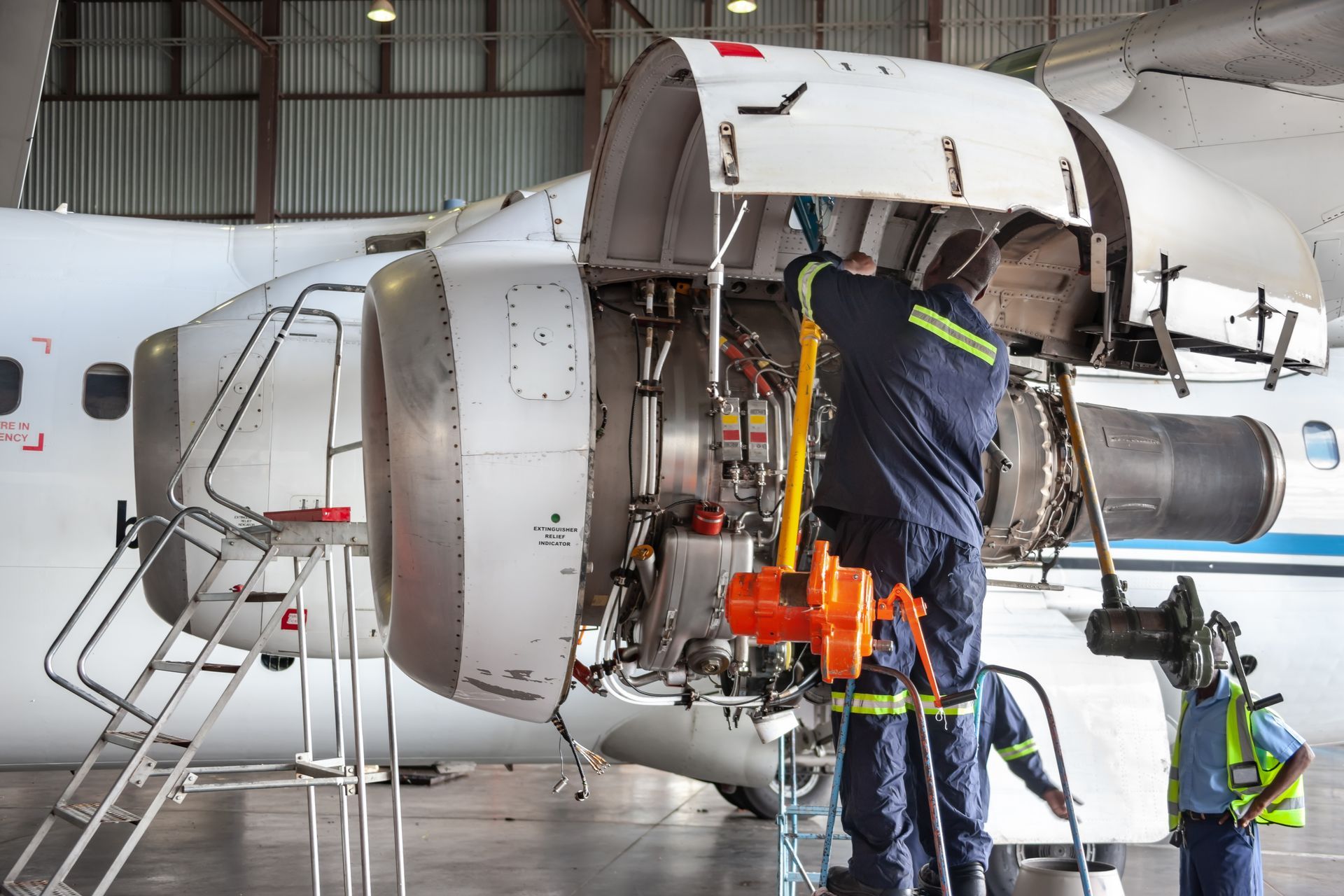How To Get A Job In Defence: The Ultimate Guide
In the UK, the defence industry is a significant employer, with over 148,000 people working across various sectors. The UK ranks second globally in defence exports, reaching an impressive £14.5 billion in 2023, following only the USA.
Central to the UK's defence industry are the British Army, Royal Navy, and Royal Air Force. These branches offer a wide array of roles, including combat, engineering, logistics, and intelligence.
Beyond military positions, there are also opportunities in public and private sector organisations, as well as within academia and research.
Whether you aspire to serve in the armed forces or support operations from a civilian role, the defence industry is a rewarding field with options that suit diverse skills and interests.
Here’s a guide on how to get a job in defence, to help you navigate your way to a successful future career.
What are defence jobs?
The defence industry comprises a vast array of activities, from land, sea, and air operations, to advanced electronics and cyber security. Defence plays a crucial role in national security by continually innovating and adapting to emerging threats.
This can broadly be divided into two main categories: military roles and civilian roles.
- Military Roles: Positions within the
British Army,
Royal Navy,
Royal Marines, and the
Royal Air Force.
- Civilian Roles: Roles in defence-related government organisations like the Ministry of Defence (MoD), as well as jobs with larger defence organisations like Thales, MBDA, and Leonardo.
Both areas offer positions that contribute directly to national security and international peacekeeping efforts.

Research Roles and Entry Requirements
Each position within the defence sector will have specific entry and eligibility requirements.
Due to security requirements, many defence roles require British citizenship and successful completion of background checks.
Some roles may need academic qualifications, such as degrees in cyber security, engineering, or logistics. Military roles often require specific physical fitness standards, age requirements, and security clearances.
Here are a few examples:
Military roles:
RAF Pilot: To become a pilot in the Royal Air Force (RAF), candidates must:
- Be between the ages of 17.5 and 23 at the time of application.
- Achieve at least two AS levels or three Scottish Highers at Grade C or above (excluding subjects such as General Studies, Citizenship Studies, and Critical Thinking).
- Satisfy specific health and fitness requirements.
Infantry Soldier: Unless you plan on becoming an Officer, soldiers joining the army do not need any qualifications. However, all recruits must meet demanding physical fitness standards and pass fitness assessments to demonstrate their readiness for the role.
Make sure you gain a clear understanding of the roles you wish to apply for and their specific entry requirements, so you can tailor your qualifications, skills, and experience on your application, increasing your chances of success.
Placements & work experience:
A degree may be essential for many defence roles, but it is rarely sufficient on its own to secure a position in this competitive sector. Building practical experience strengthens your application, helps you develop skills, and gives you valuable sector knowledge.
Due to the sensitive nature of this industry, finding traditional work experience opportunities can be challenging. You’ll need to think creatively about how to gain relevant insights and skills.
Apprenticeships:
If you prefer not to pursue a degree, apprenticeships are an excellent way to gain hands-on experience while earning.
Apprenticeships allow you to learn on the job and gain industry-specific skills, making you a strong candidate when applying for full-time roles in the future.
Examples include:
- The Ministry of Defence: As the UK's largest apprenticeship provider, the MoD offers a variety of civilian and armed forces apprenticeship opportunities across multiple sectors.
- Rolls-Royce: Specialising in aerospace, engineering, and advanced manufacturing, Rolls-Royce apprenticeships provide hands-on experience with cutting-edge defence technologies.
- BAE Systems: BAE Systems offers apprenticeships in cyber security, project management, and enterprise architecture, equipping you with the skills needed for key roles in defence.
Placements & internships:
Several organisations offer placements and internships for prospective graduates pursuing a career in defence.
Some notable examples include:
- Early Careers Network: Designed for those exploring careers within security services.
- Civil Service Summer Internship Programme: Opportunities to gain experience working within government departments.
- Royal United Services Institute (RUSI): A leading UK think tank focused on defence and security research.
- MI5 Internships: Insightful programmes into intelligence and national security operations.
- Army Officer Internships offer a chance to immerse yourself in the responsibilities of an officer for 6 to 18 months, either before, during, or after university.
Reserve Force Training:
Participating in reserve force programmes can be a valuable way to gain practical experience. Undergraduates wanting to join the armed forces can join student programmes that are linked to their respective divisions.
- Army Reserve: Offers part-time military training alongside civilian life.
- University Officer Training Corps (UOTC): Introduces students to Army life and leadership development.
- University Air Squadrons (UAS): Provides training and insight into the Royal Air Force while you study.
- University Royal Navy Units (URNUs): Offers hands-on naval experience and training during university.
Increasing sector knowledge:
Online courses are an excellent way to deepen your understanding of defence-related topics. Platforms like Future Learn offer courses such as:
Resources like these help you develop valuable technical skills and gain insight into the challenges of the defence landscape.

Applying for jobs:
Once you’ve built your qualifications and experience, you can start looking for defence roles. Here are some tips to help you find jobs in the defence sector.
- Research Employers: Identify defence organisations like the Ministry of Defence, or private companies such as Thales or BAE Systems. Check their career pages regularly for current openings and entry requirements.
- Recruitment Websites: Use specialist job boards and recruitment websites like Meritus to find defence sector roles.
- Government Job Portals: Many civilian defence roles are listed on government portals, like the Civil Service Jobs website. These portals offer many opportunities across defence, security, and intelligence departments.
- The Armed Forces Websites: Each branch of the armed forces has a dedicated careers website (The British Army, The Royal Air Force, and The Royal Navy). These pages provide information on recruitment processes and advice for joining.
Prepare for assessments:
The job selection process for many defence roles often involves multiple stages to assess your capabilities. Being well-prepared can increase your chances of success.
Examples include:
- Interviews: Expect to go through one or more interviews. These may focus on your motivation, understanding of the role, and suitability for a career in defence.
- Aptitude and Psychological Tests: These are used to evaluate your logical reasoning, problem-solving skills and emotional resilience. Examples include the Royal Navy’s Defence Aptitude Assessment and The Army’s Cognitive Test.
- Physical and Medical Assessments: Many defence roles, particularly military positions, require candidates to meet physical fitness standards. You may also undergo medical examinations to ensure you meet the health requirements for the role.
- Skills and Competency Assessments: For technical or engineering roles, you may be asked to complete assessments that test your skills in relevant areas. These practical tests will demonstrate your proficiency in the field.
Many
aptitude tests are available online for practice, helping you hone your skills in logical reasoning, problem-solving, and decision-making.
In the case of fitness, familiarise yourself with the specific fitness requirements for the role you’re applying for, such as running distances, sit-ups, or push-ups. Challenge yourself to meet these targets so you’re well prepared for test day.

How we can help:
We hope this post on how to get a job in defence helps you on your career journey. The defence sector is highly competitive, but the right preparation can increase your chances of securing a role.
At
Meritus, we specialise in helping candidates secure job roles in the defence industry. Our expert consultants are here to help you find a role where you can thrive and reach your full potential.
Get in touch with us to find out more.












